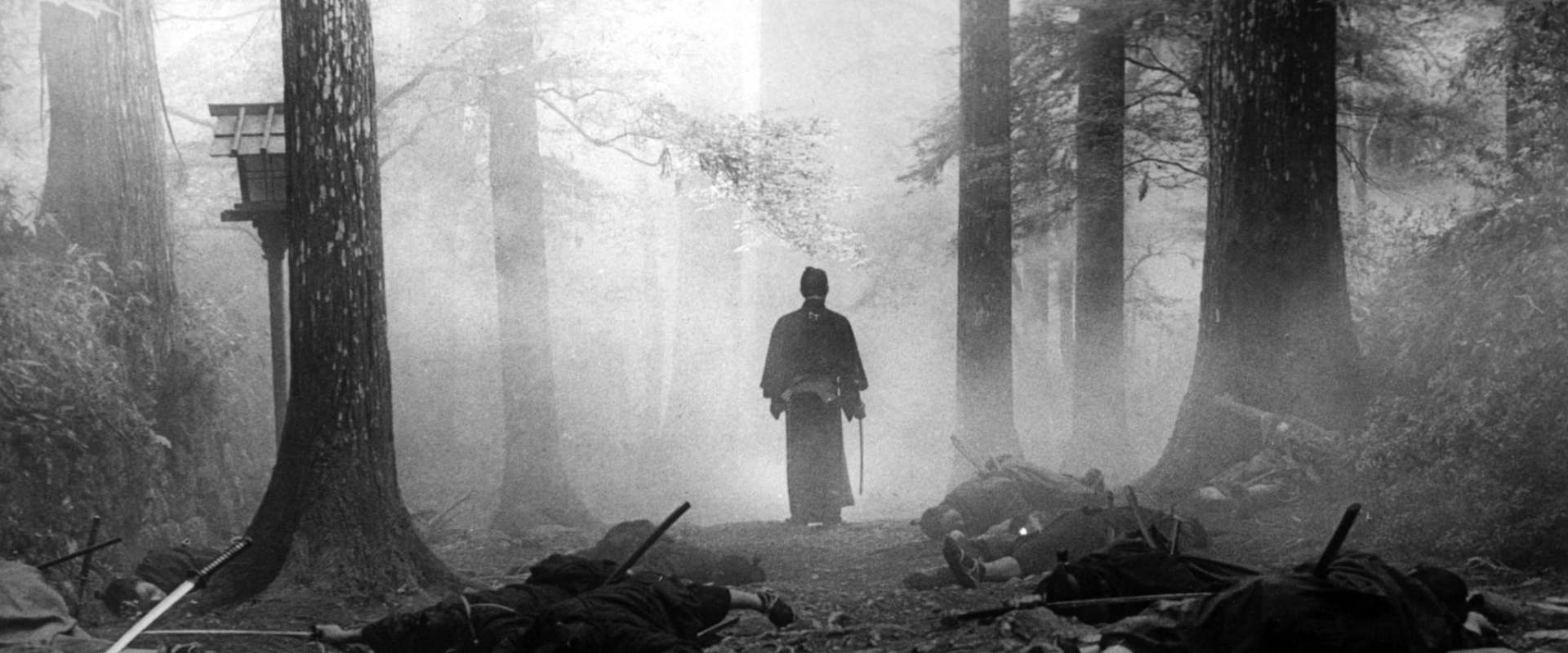Most of all I loved Fu Manchu’s headquarters’ set designs
Got to respect a guy who keeps a gigantic bell around just for civilized torture.
Honestly, my favourite line was probably when Fu Manchu screams to the horde of villians: "We shall sacrifice her to our Gods!"
Yes, the Gods of Asia. A unified pantheon. <45>
that wonderfully combine orientalism and modernism.
I'm in agreement that the movie's ludicrous set-design is it's strongest points. However, from what I remember, I just think the movie lacked narrative muscle. Like, showdowns didn't feel all that spectacular or fun. It was just a series of smile-worthy set-pieces. I mean, before I watched Fu Manchu I thought that racism was a pretty bad thing. But now I think that racism is kinda hilarious.

Also, Boris Karloff and Myrna Loy has THE BEST chemistry.
Man you've escaped with the skin of your teeth on this one, Rimbaud! There was a time when I could punch-up a 100-page analysis on Sword of Doom out of the blue. Now, I've forgotten most of it.

The Sword of Doom is based on one of the longest novels in existence. There are 3 other filmatizations of it, all full-blown trilogies. I've seen two of them, the Raizô Ichikawa one and the Cheizo Kataoka version (which is hilarious since it has a crusty 50-year old playing a 20-something guy) Btw, the novel achieves this herculean length by having
one-GAZILLION subplots!!!! so don't let the length impress you.
Anyways, the theme of
Great Boddisatvas Path (the novel's name) is to observe karma in-progress. Karma is a slow-moving cosmical force, you see? So you need a really extensive plotline to unveil its mystical workings (or so the logic goes). The moral consequences of one action can have no apparent until years down the line. So it's purpose is to sketch how cosmic moral forces affect a guy like Ryunosuke, and that there actually is a higher power that governs the world, which capsizes his entire worldview. The other filmatizations stuck closer to this theme (with varying effectiveness).
Before proceeding further, let's just elucidate Ryunosuke's philosophy first shall we? The guy essentially doesn't believe that actions have consequences. There is no grand order which governs the Universe -- dispensing truth, justice and all that good shit -- and therefore he has no qualms about killing on a whim. Believing in no objective truth that governs him, he wrecks shop however he sees fit, living solely for the visceral pleasure he gets from his sadistic actions. Moral truths are just wind. So why care?
Anyways,
Sword of Doom mostly strips away all of this cosmo-karma-stuff and instead becomes all about observing a psychopath in action. It turns the cosmological and makes it psychological. Take for instance, that late scene where he encounters the daughter of the pilgrim that he murdered. In the other filmatizations, this is basically cosmic-karmas first "prod" at him. It's the first hint that there will be comeback due to his heinous actions, that there is an order set-in-place to judge him. Through a million-to-one chance, he has encountered someone whom he randomly wronged, a hint that there are consequences for ones actions and they come back to haunt you. However, comparing it to the breakdown in Sword of Doom is almost funny. He basically gets mad and then treats the incident like a bad hangover!<45>
While in the other filmatizations this scene serves as a "prod", in Sword of Doom its a full-on psychological breakdown. The guy just unravels straight into crazy-town. This Ryunosuke basically still hold the same worldview as the other iterations. However, unlike the others, the focus isn't on some cosmological lesson but on how fragile the worldview of crazy people are. One simple random encounter that contradicts his understandings just undoes him like threadwork, making Ryunosuke have to face the fact that by killing he causes pain and suffering and so the ghosts of his past victims come back to haunt him with sepulchral wailings. But being crazy, the only way he can respond to their suffering is by slashing at shadows, hoping to kill them again so to be rid of their consequences.
I also love how his shadowy victims transition into real assassins and Ryunosuke barely seem to notice.
. Through a lot of the middle sections I did feel like it began to drag as side-narratives somewhat halted the momentum of the main story. I would even say that I was starting to lose some patience with it,

Ahah! But there is a reason for that, Rimbaud!
The middle part is a lot of political manoeuvring. In the other filmatizations, this was treated as important shit. "The Shogun's taskforce is moving on Hokkaido!" someone yells, and then the camera cuts to a close-up of someone shouting "
Nani!!?"
However, in Sword of Doom, all of this is treated offhandedly and with much disinterest. It's just going through the motions. Why? Because its a reflection of Ryunosuke's psyche.
He is disinterested in all this political jabbering that surrounds him, and therefore, so is the film, since it's only interested in his psyche. He is only in this government-feud as an excuse to kill people. And so the storytelling reflects on that fact.
I dunno that decision may only seem impressive if you've seen the other films.<45>











